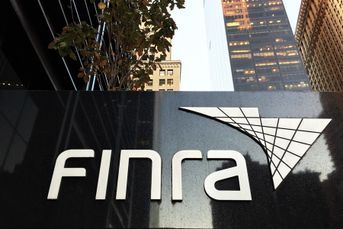Merrill sending strong signal: Think richer
Merrill Lynch & Co. Inc. sent signals loud and clear last week as it upped the wages of…
Merrill Lynch & Co. Inc. sent signals loud and clear last week as it upped the wages of its 15,000 brokers.
The message: The company will set the pace in broker compensation to keep its top producers. It wants those brokers to shoot for richer clients, and it wants the brokers to sell more fee-based money management.
The moves, made as Merrill continues to cut jobs, also simplify the pay plan, which was infamous for its complexity. It is now 17 pages, down from 86 pages.
But elements of the new plan, which was expected, did surprise some. “I’m stunned – it’s based on old money, not just new money,” says a veteran Merrill Lynch broker.
That is, brokers will receive a larger share of the management fee even for existing accounts.
Broker-dealers commonly motivate their sales forces to sell products by giving them incentives such as bigger payouts. But Merrill’s new pay plan includes client assets that were previously invested with a broker – not just new money.
Ninety percent of the brokers in the Merrill veteran’s office, in effect, will receive a raise next year, before adding clients or assets to their book of business, he says. His office, he notes, has a particularly high ratio of brokers selling fee-based accounts.
The payout range for the fee-based accounts, which must have a minimum asset size of $100,000, is between 35% and 50% of the annual fee, up from 32% to 40%. Merrill charges a management fee of 1.5% of assets in the account.
The move comes on the heels of a three-month sales campaign that ended in September in which Merrill boosted pay by 5 percentage points on some of its managed-money platforms, including its Merrill Lynch Consults and MFA programs, notes an industry observer.
And the company is also sweetening the pot for brokers who still do business the old-fashioned way – charging commissions. Merrill is increasing the size of the commission for brokers on large trades.
In accounts of more than $100,000, for a trade or “ticket” of more than $500, brokers will receive a commission of between 25% and 50% of the payout. In accounts of less than $100,000, a broker will receive no more than 25% of the payout for the same trade. There will be no commission for trades of less than $500.
“Merrill is recognizing [that] in the high-net-worth world, customization is what it’s all about,” says Mark Elzweig, president of an eponymous New York recruiter. “Whether it’s fee-based or big transaction tickets, Merrill is going to encourage” business with wealthy clients.
Brokers also will be paid more for setting up loans for clients. Brokers will not be penalized for negotiating fees with clients, as they were before.
Merrill is also improving retirement packages and deferred compensation. Financial advisers, for example, will get a new stock option plan.
And brokers will receive unique benefits. Merrill will put up $100,000 for a down payment on a home, so long as brokers negotiate the loans through Merrill’s bank.
However, brokers will lose out on pay when they sell money funds. The payout has been reduced to 56%, from 100%, of the fee. The new pay plan is scheduled to begin Jan. 1.
The company’s intention is clear, adds the veteran Merrill broker. “The structure of the compensation is to drive the firm’s strategy,” he says.
He says that Merrill Lynch wants its brokers to “annuitize” business, or sell money management programs that charge an annual fee, such as Merrill Lynch Consults. About one-third of the brokers’ $1.5 trillion in assets is in fee-based accounts, says Eddie Reeves, a Merrill Lynch spokesman.
Merrill Lynch, like most Wall Street firms, has been feeling pain of late. Company president and chief operating officer E. Stanley O’Neal is under pressure to increase profits. Merrill’s stock price was $43.71 at the end of trading last Wednesday, down 35.7% over the last 12 months. Its net profit in the third quarter dropped 52.3%.
And before it decided to give the raise to brokers, it said it wanted to cut its work force. It laid off or did not replace 2,300 employees in the third quarter. In an effort to cut deeper, it is rolling out buyout plans for its 65,900 employees. But brokers are not part of that job cutback, observers say.
The higher payout will help Merrill Lynch keep – and recruit – top brokers, says Danny Sarch, president of Leitner Sarch Consultants Ltd., a recruiting firm in White Plains, N.Y. “It’s clear they’re creating a pay raise for anybody they’re concerned about keeping. It’s tough to argue with.”
Learn more about reprints and licensing for this article.








